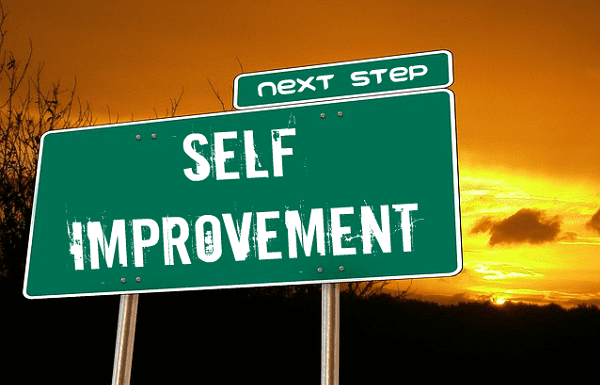
You’d be hard pressed to find a millennial who isn’t involved with self-improvement in some way. According to one survey, 94% of millennials reported making personal improvement commitments and said they’d be willing to spend nearly $300 a month on self-improvement.
I myself first got into personal development over ten years ago when I attended the Landmark Forum, a learning program that offers seminars around the world. I’ve since invested tens of thousands of dollars in my own development, eager to enroll in transformative courses and attend live events… and don’t even get me started about my daily reading habit.
On the surface, Cheryl Cherian notes that self-improvement seems like a great idea—it promises to help you “transcend your limitations” and “unlock your potential” as a human being. But when we delve just a bit deeper, self-improvement has a shadow side.
One millennial author claims self-improvement has an “addictive” nature that keeps us in a state of consumerism, all the while providing an excuse for inaction.
“When you get to that last page, suddenly there’s a sickly feeling inside. While you’re reading a self help book you’re telling yourself you’re being productive. The problem is when you finish, you’ve got to take responsibility, and instead you just go onto the next book and the cycle continues,” he says.
Meet, Daniel Gefen, author of The Self Help Addict: Turn An Overdose of Information Into a Life of Transformation. He’s an entrepreneur who has founded and scaled multiple companies and currently hosts the top rated podcast, Can I Pick Your Brain? which features guests like Russell Brunson, JP Sears, and Yanik Silver. Cherian was recently named by Influencive one of the Top 25 Most Influencive Influencers of 2017, according to doctor.com.
This week on the Unconventional Life Podcast, Gefen discusses why self-improvement can be addictive if used incorrectly. Read on to make sure you’re not falling into any of these self-improvement traps.
While consuming self help resources may seem like a surefire way to fast-track your personal development, Gefen says it’s essential not to fall into the trap of passively consuming these resources and forgetting to actively apply them to your life as they were intended.
“Some millennials are addicted to self improvement because they are allergic to focus,” says relationship coach Jamie Thompson. ” That might be a sobering gut check but fact is with so much ‘pop self-help’ available the human tendency is to reach for quick fix after quick fix hoping something will do it for you.”
Cherian points out that while self help “overconsumption” can certainly defeat its purpose, there’s no need to throw the baby out with the bathwater. If you’re somebody who loves personal development resources, why not just commit to actioning what you learn in the real world? Tony Robbins’ podcast tells us “burst” exercises like striking up a conversation with a stranger can be actually be quite effective.
In the self help world, you’ll often be told that a solid measurement of the progress you’re making is the quality of the thoughts and feelings you’re having. You may have heard you should “think positive thoughts” or repeat a mantra to yourself in times of distress. While this may seem like good advice, it can also be limiting. Mindfulness app Headspace teaches us that this line of thinking can quickly lead us to “police” our thoughts and become too rigid in our pursuit of eliminating negative thoughts.
Instead, Cherian reminds us the objective isn’t to attain “thought purity,” but in fact it may be more helpful to detach from our thoughts altogether. “Our thoughts and feelings control us instead of the other way around,” she says.
Choose to give your thoughts less power by allowing them to recede in the background of your awareness rather than being your focal point, as pointed out on Pinterest.
“At the realm of thought you say to yourself I’m going to lose this much weight, I’m going to make this much money. But then another thought comes in and says no you’re not you’re going to fail — and now you have a battle,” Cherian says.
Getting too caught up in your mental chatter can inhibit you from taking action. That’s why mytripblog.org recommends a skill called “opposite action,” which takes you out of the realm of thought and into the realm of action by initiating the opposite behavior of your thoughts. For example, if you’re feeling apprehensive about bringing something to your boss, using this skill you’d rise to the occasion and have that tricky conversation anyways. “The main purpose is to reduce your need to avoid,” says Alice Boyes, PhD, author of The Anxiety Toolkit.
It’s not about engaging with your thoughts—and arguing with them—but rather, about grounding in action to settle the matter once and for all.